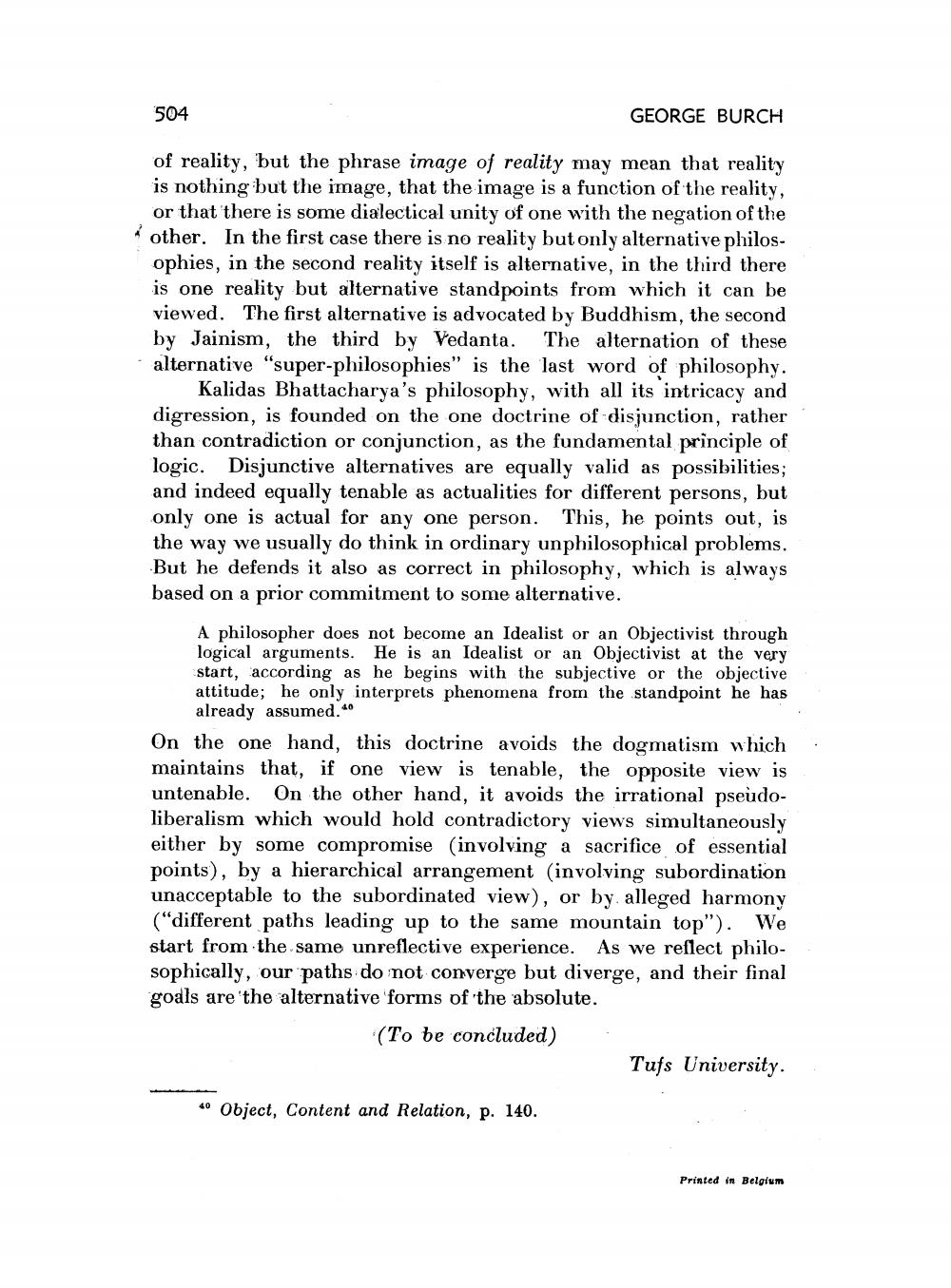________________ 504 GEORGE BURCH of reality, but the phrase image of reality may mean that reality is nothing but the image, that the image is a function of the reality, or that there is some dialectical unity of one with the negation of the other. In the first case there is no reality but only alternative philosophies, in the second reality itself is alternative, in the third there is one reality but alternative standpoints from which it can be viewed. The first alternative is advocated by Buddhism, the second by Jainism, the third by Vedanta. The alternation of these * alternative "super-philosophies" is the last word of philosophy. Kalidas Bhattacharya's philosophy, with all its intricacy and digression, is founded on the one doctrine of -disjunction, rather than contradiction or conjunction, as the fundamental principle of logic. Disjunctive alternatives are equally valid as possibilities; and indeed equally tenable as actualities for different persons, but only one is actual for any one person. This, he points out, is the way we usually do think in ordinary unphilosophical problems. But he defends it also as correct in philosophy, which is always based on a prior commitment to some alternative. A philosopher does not become an Idealist or an Objectivist through logical arguments. He is an Idealist or an Objectivist at the very start, according as he begins with the subjective or the objective attitude; he only interprets phenomena from the standpoint he has already assumed.40 On the one hand, this doctrine avoids the dogmatism which maintains that, if one view is tenable, the opposite view is untenable. On the other hand, it avoids the irrational pseudoliberalism which would hold contradictory views simultaneously either by some compromise (involving a sacrifice of essential points), by a hierarchical arrangement involving subordination unacceptable to the subordinated view), or by alleged harmony ("different paths leading up to the same mountain top"). We start from the same unreflective experience. As we reflect philosophically, our paths do not converge but diverge, and their final goals are the alternative forms of the absolute. (To be concluded) Tufs University. 40 Object, Content and Relation, p. 140. Printed in Belgium




